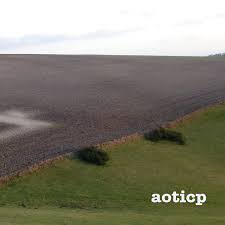Gagarin is the nom de plume of Graham Dowdall, who has a long and distinguished history as a percussionist and electronicist. He played drums with Ludus in the early 80s, his busy, garrulous rhythms arguably as defining a feature of her earliest releases as her own contributions. He also played alongside Nico in her underrated twilight years and is a member of the current Pere Ubu line-up, providing a liquid bed of abstract electronics to accompany David Thomas’s continued, still vital lyrical meanderings.
Dowdall’s moniker alludes to the ill-fated Soviet cosmonaut Yuri Gagarin, the first human to journey into outer space. As a carrier of Soviet ideas and cosmic ambitions, he represents a lost possible future, a modernity that never materialised, the half-formed, half-decayed memory of which tantalises 21st century imaginations. This album is an appropriate soundtrack to that hankering; each piece is a mechanical ballet playing out against a lonely, oblivious deep space backdrop, like fully operational pieces of equipment from some long abandoned space exploration project, still whirring and wheeling. Aoticp, with its phonetic clusters for titles, bears a distance relationship to Autechre, but Gagarin’s distinctive percussive patter and sense of spatial arrangement make for a music that ill-deserves glib IDM bracketing.
There’s no overall pattern or template here; each track explores its own individual orbit of ideas. ‘Ammil”s weaving, faintly Middle Eastern percussion (a Gagarin trademark) is countered by metallic, synaptic bursts of electricity, swelling and evaporating over a classic, stately melody. ‘Home Service V2’ (like ‘Light Programme V2’ an edit from a longer piece released in 2014) cranks and churns remotely, lost in the grainy distance, like one of Edgar Varèse’s "interpolations" from Déserts regarded through the mists of time.
‘Equoranda”s digital sprinkle reminds of Bernard Parmegiani’s distinctive electronic chime composed for us at Charles De Gaulle airport, gleams like an immaculate, lost cluster as regarded from the rueful perspective of the post-space age. ‘Hilversum”s random, generative droplets eventually coalesce into a working pattern as mellotron-type triangles hove overhead. Like all the best Ambient it evokes a sense of inquisitive disquiet rather than complacent relaxation. It contrasts with ‘Troglodyte’, whose acidic rhythms sound like a transmission from Kepler 452B, planet earth’s recently-discovered "cousin", with multiple limbs flailing and glowing fingers stabbing the air. Slowly but surely, music of this electronic calibre is wending its way into the public consciousness as more and more people cast their ears skyward and marvel at just what’s out there.
<div class="fb-comments" data-href="http://thequietus.com/articles/18442-gagarin-aoticp-review” data-width="550">


